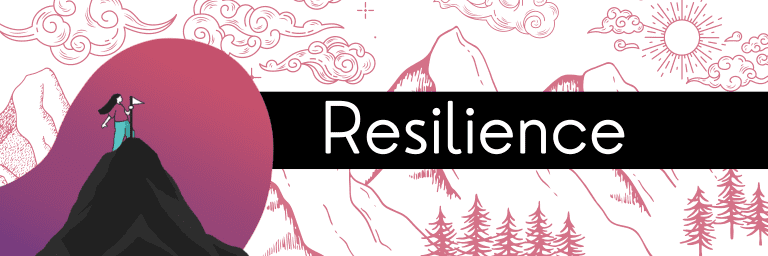
What is Resilience?
 “Resilience is not just your ability to bounce back, but also your capacity to adapt in the face of challenging circumstances, whilst maintaining a stable mental wellbeing. Resilience isn’t a personality trait – it’s something that we can all take steps to achieve”
“Resilience is not just your ability to bounce back, but also your capacity to adapt in the face of challenging circumstances, whilst maintaining a stable mental wellbeing. Resilience isn’t a personality trait – it’s something that we can all take steps to achieve”
This is highly relevant at present; the resilience of organisations, teams and individuals is being tested to an extreme not known before. Anxiety levels are higher than usual for everyone currently.
Rapid changes in working practices, our home life and social life are happening, and the future is not clear. Being resilient can help protect from mental ill health and manage stressful situations. This will in turn help you to be more effective in your working life.
A resilient person has…
- a sense of purpose and direction
- takes a positive outlook on things
- is self-aware
- has confidence in their own abilities
- can recognise when pressure is causing a problem
- makes connections to other people
- has strategies to cope with in-the-moment pressure
- grows and develops
- and has strategies to cope with long term pressure.
Factors that contribute to becoming resilient include being physically fit, taking rest breaks, eating and sleeping well. Support from colleagues is vital, communicating well and being mindful of the anxiety of others is key. When a colleague is irritable do not take it personally! Being realistically optimistic is helpful, CBT and mindfulness interventions have been shown to be effective in enhancing resilience.”
Resources
- BMJ Learning Module : ‘Understanding Resilience in the Workplace’. This is forms part of their Wellbeing Course and has been reviewed positively by colleagues in recent weeks.
- RCGP: Resilience Podcast with David Peters
- Dr Phil Hammond: CLANGERS. “Our health is our freedom to live a life that we have reason to value, and our ability to bounce back when our circumstances change and life kicks us in the teeth. Both of these elements of health are more likely to happen if we try to adopt daily habits that are fun, good for us and rewarding. One way to remember them is the acronym CLANGERS, which depicts 8 daily vitamins (and joys) of health.”
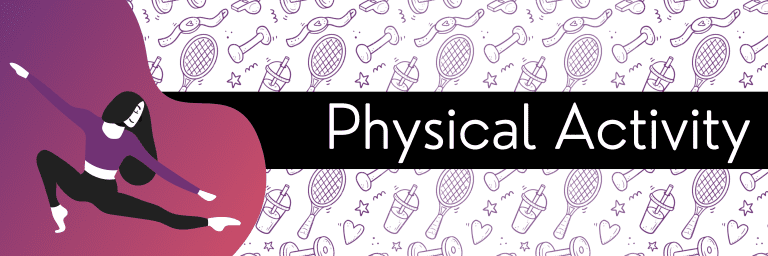
Why Physical Activity?
A GP that shifts from being sedentary to doing some physical activity has the largest potential health gains: just 10 minutes a day of moderate intensity physical activity can add almost 2 years to life and being active in line with the government guidelines can add almost 3 years.
The Active 10 App https://www.nhs.uk/oneyou/active10/home supports fitting achievable activity targets into a busy day.
Having a culture in the organisation that supports health and well being for staff has positive benefits for all, GP’s are powerful role models for staff and patients.
Resources
- Parkrun Practices Initiative was launched in 2018 and is aimed at bringing staff, patients and communities together promoting wellness. Find out more at the Parkrun Practice Website – something to consider when normal life resumes.
- Desk Activities: “We are made to move, not sit at a desk 12 hours a day, ” Joan Price, author of The Anytime, Anywhere Exercise Book. ” CLICK HERE to view the full article on the WebMD website
- Why Sitting Is The New Smoking “there’s a health risk you might be taking everyday, something you’re unaware of. It can increase your risk of many diseases and running further or faster isn’t going to help. What it is?” CLICK HERE to view the full article including “12 Tips For Making Your Working Day More Active”
- Couch to 5K: go from couch to the ability to run 5km in just nine weeks!
- Active 10: Add more regular bursts of brisk walking to your daily routine with activity tracking, encouragement and achievable milestones.
- iPrescribe Exercise: The iPrescribe Exercise app creates a 12-week exercise plan based on health information entered by the user. It then sets the duration and intensity of the exercise based on this information.
- Better Health (NHS) – there is some great information on the NHS website to help you be more physically active.
- Wellbeing Apps (NHS) – there are some great Health Living apps on the NHS website to help you be more physically active.
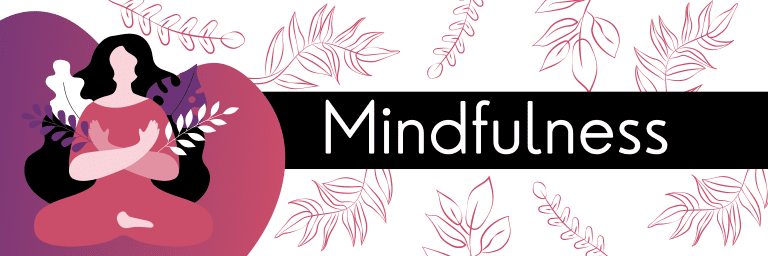
What is Mindfulness?
“a mental state achieved by focusing one’s awareness on the present moment, while calmly acknowledging and accepting one’s feelings, thoughts, and bodily sensations, used as a therapeutic technique”
Studies have shown that Mindfulness Based Interventions (MBI) reduce distress and improve wellbeing for health care practitioners, also that electronic delivery of MBI’s are effective and accessible.
Mindfulness “it’s not a temporary state of mind that is present during meditation and then vanishes for the rest of the day. Rather, mindfulness is a way of living in which — when we remember — we are able to step back and be in the present moment in any situation”
“Mindfulness doesn’t eliminate stress or other difficulties; instead, by becoming aware of unpleasant thoughts and emotions that arise because of challenging situations, we have more choice in how to handle them in the moment — and a better chance of reacting calmly and empathetically when faced with stress or challenges”
Taken from headspace.com CLICK HERE for full article.
Resources
- Be Mindful: This is an online mindfulness course for better mental wellbeing. CLICK HERE for a free intro and to access the course
- Oxford Mindfulness Centre: Considering the difficult times currently faced amid the Coronavirus pandemic, the OMC is offering a free weekly online mindfulness sessions, open to those who feel they would benefit. CLICK HERE to access the site and mindfulness sessions.
- TED Talks: There are lots of TED talks that cover Mindfulness, from useful information, to ‘How To’s’ , to mindfulness playlists. CLICK HERE to view
- Insight Timer: This free app has a library of over 25,000 guided meditations covering topics like stress, relationships, creativity and more. There are also free talks and podcasts with life advice and motivation as well as music tracks and sounds.
- Smiling Mind: This free app includes enough meditations to keep you engaged without overwhelming you with choice covering topics such as Mindful Foundations, Workplace Sessions, Sleep Sessions and more. Most sessions are 5 to 15 minutes.
- 10% Happier: This app focuses on being “a relatable, no nonsense way to learn mindfulness for people. This app is led by Dan Harris who had a panic attack live on TV, an experience that eventually led him to pursue meditation. *CLICK HERE to view more information and other Mindfulness Apps at mindful.org
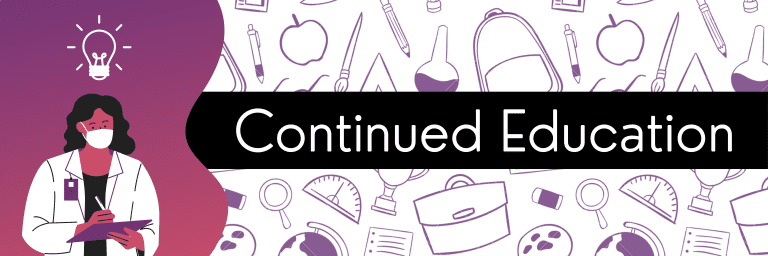
Why continued Education?
Research shows that learning new skills can improve mental health and wellbeing; it can boost confidence and self-esteem, help to build a sense of purpose and can help to connect with others.
Learning can be achieved in many different ways, some examples below:
- learning to cook a new recipe or a new song on an instrument.
- Taking on a new responsibility at work such as improving presentation skills or becoming a mentor.
- Build something (small or large) such as fixing a chair or bike or DIY building a garden shed.
- Sign up for a course such as learning a language or a practice skill such as plumbing or massage.
- Take up a new hobby such as joining a sports club, gym or learning to create such as arts and crafts.
Learning does not need to be costly or involve official qualifications and exams. It is best to find something that you will enjoy.
Resources
- BMJ Learning: new-learning.bmj.com
- Ted Talks:
- Why are we happy? Why aren’t we happy? | Dan Gilbert
- What makes a good life? Lessons from the longest study on happiness | Robert Waldinger
- How to Be Happy Everyday | Jacqueline Way
- Try something new for 30 days | Matt Cutts.
- How to Learn Something New Every Day and Stay Smart: www.lifehack.org/articles
- Lincolnshire LMC Training & Events: www.lincslmc.co.uk/events
- eLearning for Health: www.e-lfh.org.uk
- RCGP Learning: elearning.rcgp.org.uk
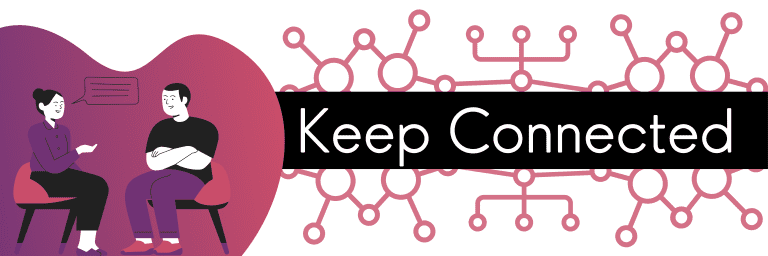
Why stay connected?
“Friendships offer a number of mental health benefits, such as increased feelings of belonging, purpose, increased levels of happiness, reduced levels of stress, improved self-worth and confidence. “
Ways to stay connected…
- Speak instead of text – whether that is talking face to face or phoning someone rather than emailing and texting.
- Have your coffee and lunch breaks with others in a common or staff room.
- Say hello to people when walking down a street.
- Arrange to catch up with friends in person instead of posting on social media.
Resources
MeetUp.com – this website is a forum for groups and people, in your area, coming together to connect.
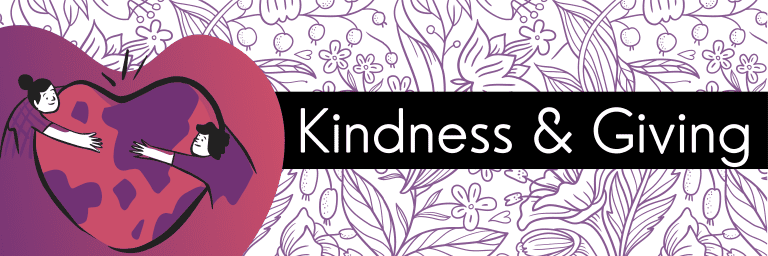
Why kindness and giving?
Research suggests that acts of giving and kindness can help improve your mental wellbeing by…
- creating positive feelings and a sense of reward
- giving you a feeling of purpose and self-worth
- helping you connect with other people
Why not…
- Say thank you to show appreciation for what others do for you
- Ask ‘How Are You?’ and really listen to the response
- Spend time with someone who needs support or company
- Volunteer in your community whether that be at a club, school, community centre, care home, etc.
- Get involved with a charity, through participating in sponsored activities, donating, giving time and using your skills.
Resources
- Mental Health Foundation – more information about useful organisations and volunteering
